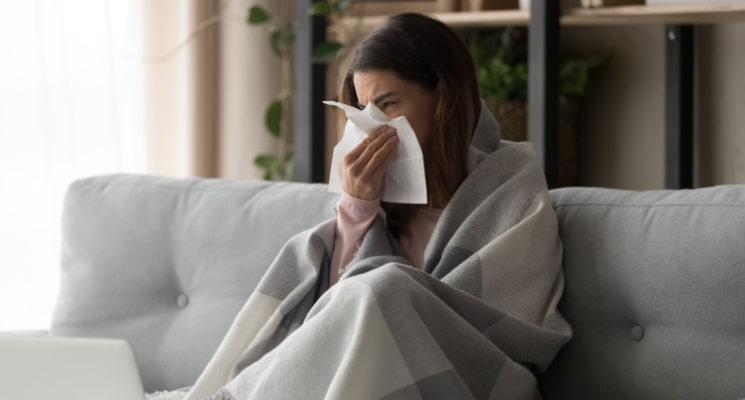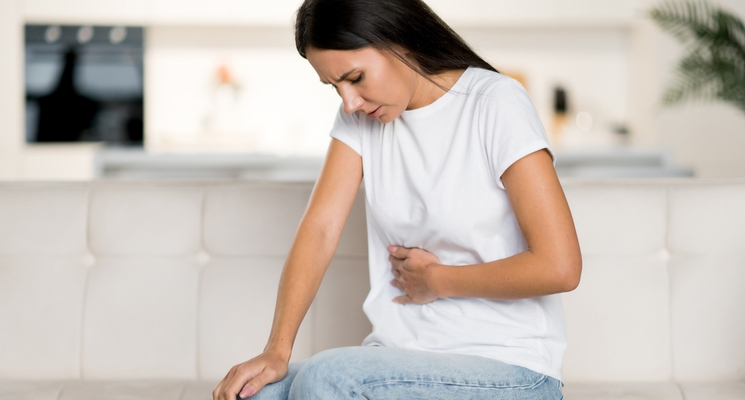Dietary choices shape overall well-being. This is a medical fact that any doctor on call in Dubai would endorse. Research shows a correlation between specific food choices and an elevated risk of cancer. Even though no single food can be completely blamed for its development, awareness of dietary implications is necessary.
Consulting with your doctor at home ensures informed choices, fostering a proactive approach to maintaining a health-conscious lifestyle. With that, keep an eye out for the 10 foods below, which have been flagged for increasing the risk of cancer development.
Processed Meats
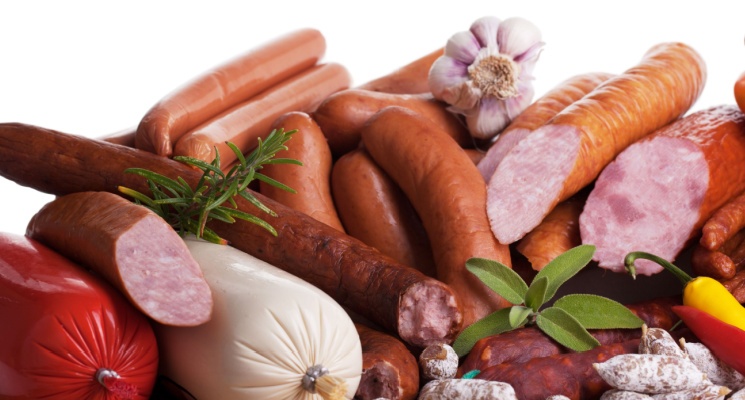
Processed meats have been extensively studied in relation to cancer risk. These meats undergo processes such as smoking, curing, or salting. Processing leads to the formation of harmful compounds like N-nitroso compounds and polycyclic aromatic hydrocarbons (PAHs). These compounds have been associated with an increased risk of colorectal and stomach cancers. To steer safe, it is advisable to limit the intake of processed meats and go for alternatives.
Risk Factors
- The formation of harmful compounds, such as nitrites and nitrates used in processing can lead to the formation of compounds, linked to cancer.
- Processed meats often contain high levels of salt, associated with an increased risk of stomach cancer.
Preventative Measures
- Limit intake by reducing the consumption of processed meats like sausages, bacon, and deli meats.
- Choose alternatives like lean, unprocessed meats or plant-based protein sources.
- Read labels, selecting products with lower sodium content and without added nitrates or nitrites.
Sugary Beverages

An increased risk of obesity and certain cancers have been associated with high consumption of sugar-filled beverages. These include energy drinks, sodas, and fruit juices that have been sweetened. The high sugar level in these drinks causes inflammation and weight gain, which creates an environment that is favorable to the development of cancer. Selecting healthier options without added sugars will help lower the danger that comes with consuming too much sugar.
Risk Factors
- Excessive sugar intake contributes to weight gain, increasing the risk of certain cancers.
- Elevated sugar levels can lead to insulin resistance, linked to cancer development.
Preventative Measures
- Choose water, herbal teas, or natural fruit juices without added sugars.
- Be mindful of hidden sugars in beverages, preferring unsweetened alternatives.
- Consume sugary beverages in moderation to reduce overall sugar intake.
Fried and Grilled Foods

Cooking at high temperatures can produce chemicals that cause cancer. It is commonly known that these chemicals change DNA, which may increase the risk of many malignancies, such as prostate, pancreatic, and colorectal cancers. Cooking routines like grilling and frying can be harmful to your health. Eating fried and grilled food can be less dangerous if you cook it using baking, steaming, or boiling.
Risk Factors
- Carcinogenic compounds like heterocyclic amines (HCAs) and polycyclic aromatic hydrocarbons (PAHs) form during high-temperature cooking. These compounds may cause changes in DNA, contributing to cancer development.
Preventative Measures
- Healthy cooking methods should be practiced.
- Marinating meats in herbs, spices, or acidic liquids before cooking can reduce the formation of harmful compounds.
- Select lean meats and trim visible fats to minimize exposure to harmful compounds.
Red Meats
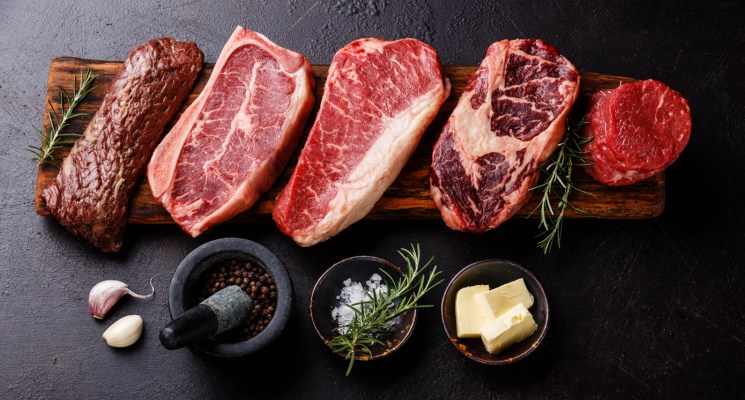
Lean red meats are an excellent source of vital nutrients, but consuming too much has been associated with a higher risk of colorectal cancer. This is especially for processed red meats. The formation of chemicals and heme iron during the processing may play a role in cancer development. Choose lean cuts to lower your risk. Furthermore, adding plant-based protein sources can be a healthy way to reduce the danger that comes with processed and red meats.
Risk Factors
- Red meat contains heme iron, which may contribute to the formation of carcinogenic compounds.
- Preservatives and additives in processed meats may increase cancer risk.
Preventative Measures
- Limit the consumption of red and processed meats.
- Consider using fresh herbs, spices, or vinegar for flavor instead of processed meats.
Alcohol

Drinking too much alcohol has long been linked to an increased risk of developing several malignancies. Usually it is liver, breast, or esophageal cancers. Alcohol’s ethanol is converted by the body into the known carcinogen acetaldehyde, which can damage DNA and make it more difficult for the body to heal injured cells.
It is advised to drink alcohol in moderation or to think about giving it up entirely to reduce the risk of cancer. Generally speaking, moderation is regarded as one drink for women and two for males per day.
Risk Factors
- Ethanol in alcohol metabolizes into acetaldehyde, a known carcinogen.
- Acetaldehyde can cause DNA damage, impairing the body’s ability to repair cells.
Preventative Measures
- Consume alcohol in moderation.
- Incorporate alcohol-free days into your week to reduce overall intake.
- Choose non-alcoholic alternatives during social events to minimize alcohol consumption.
Highly Processed Foods
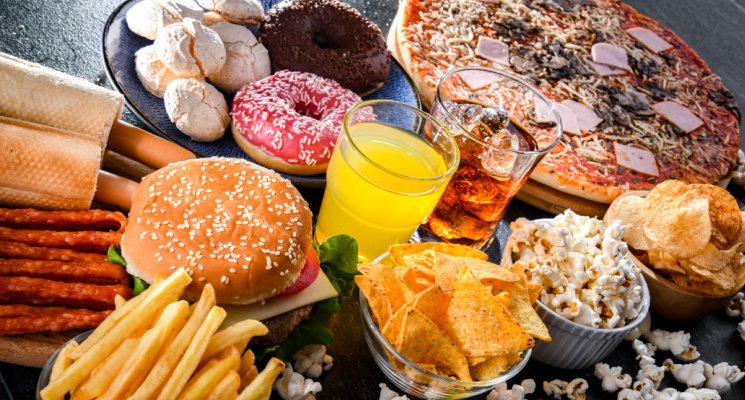
High-processed foods frequently contain a variety of artificial additives, preservatives, and high sugar and salt content. The creation of hazardous chemicals during processing has been connected to an elevated risk of cancer with these substances. Their convenience and long shelf life makes them a popular pick. Overindulgence in certain foods may lead to inflammation, obesity, and altered gut microbiota, all of which are linked to increased cancer risk.
It is urged to prioritize cooking at home with fresh, unprocessed ingredients to restore control over their diets. Make sure to choose whole, minimally processed foods, and carefully study food labels to identify and avoid additives.
Risk Factors
- Preservatives, colorings, and flavor enhancers in highly processed foods may have carcinogenic properties.
- High sugar and salt content contributes to obesity, inflammation, and other factors associated with increased cancer risk.
Preventative Measures
- Be vigilant about ingredient lists and choose products with fewer additives.
- Prepare meals at home using fresh ingredients to have better control over the cooking process.
Artificial Sweeteners

Thought to be a low-calorie substitute for sugar, artificial sweeteners have generated debate about their health effects. Research suggests a connection between artificial sweeteners and cancer. Even while regulatory organizations have given their approval, it is still unclear what concerns there might be from long-term use.
It is recommended to use these sweeteners sparingly and look into natural substitutes like honey or maple syrup. Selecting whole fruits for sweetness adds vital vitamins and fiber to your diet, in addition to being a more natural supply of sugars.
Risk Factors
- Some studies suggest a potential link between artificial sweeteners and cancer, but research remains inconclusive.
- Potential disruption of gut microbiota is being explored as a possible factor in cancer development.
Preventative Measures
- Use artificial sweeteners in moderation.
- Prefer natural sweeteners when needed.
- Choose whole fruits to satisfy sweet cravings.
Non-Organic Produce with Pesticide Residues
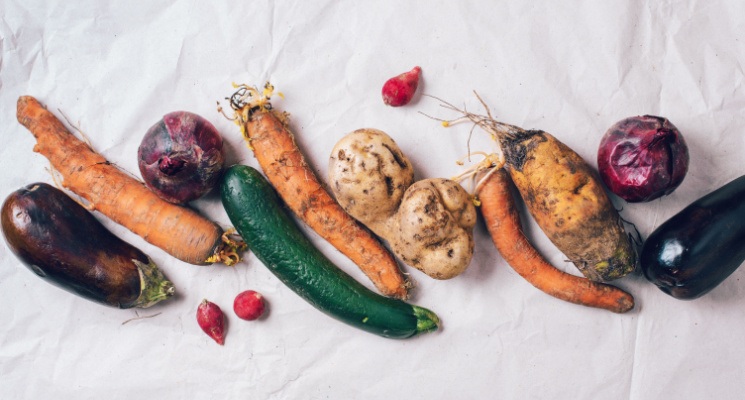
Pesticides are chemicals used to protect crops from pests and diseases. These can leave residues on fruits and vegetables, even after washing. Studies have suggested a potential link between long-term exposure to certain pesticides and an increased risk of certain cancers. Pesticides may contain carcinogenic substances, and consistent exposure to these residues through the consumption of conventionally grown produce could contribute to cancer.
Risk Factors
- The amount and concentration of pesticide residues on non-organic produce can vary. Higher levels of residue may pose an increased risk over time.
- Some pesticides have been identified as potentially carcinogenic, adding to the overall risk of cancer.
Preventative Measures
- Opt for organic fruits and vegetables, which are grown without synthetic pesticides or fertilizers.
- Rotate the types of fruits and vegetables you consume to minimize consistent exposure to specific pesticides.
- Stay abreast of information regarding pesticide residues and their potential risks to cancer.
Canned Foods with Bisphenol A (BPA) Linings
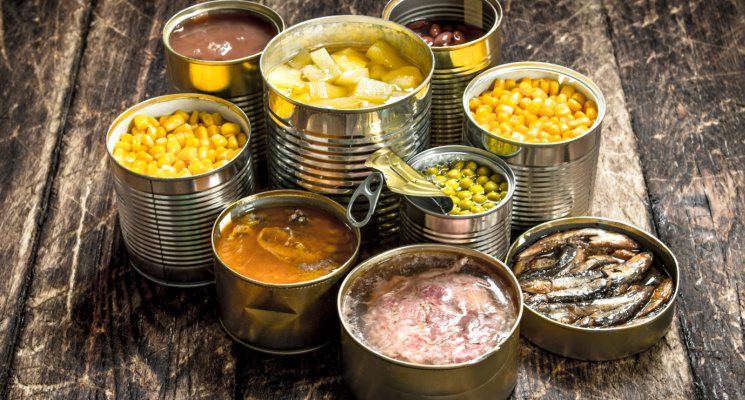
BPA is usually present in can linings. Thus, there may be health risks associated with the convenience of canned goods. Concerns have been raised about the industrial chemical BPA because of its potential to alter hormones and cause cancer. It is recommended to purchase BPA-free products and select fresh or frozen options where available.
Make sure to limit the use of canned foods as much as possible in order to minimize their exposure. By making knowledgeable decisions, this proactive strategy not only improves health, but also increases demand for safer packaging options in the food business.
Risk Factors
- Found in some canned foods, BPA is an endocrine-disrupting chemical associated with cancer and other health issues.
- BPA may leach into the contents of cans, especially when exposed to heat.
Preventative Measures
- Look for canned goods labeled as BPA-free.
- Prefer fresh or frozen foods over canned options when possible.
- Opt for alternatives like fresh vegetables and fruits.
Smoked and Pickled Foods
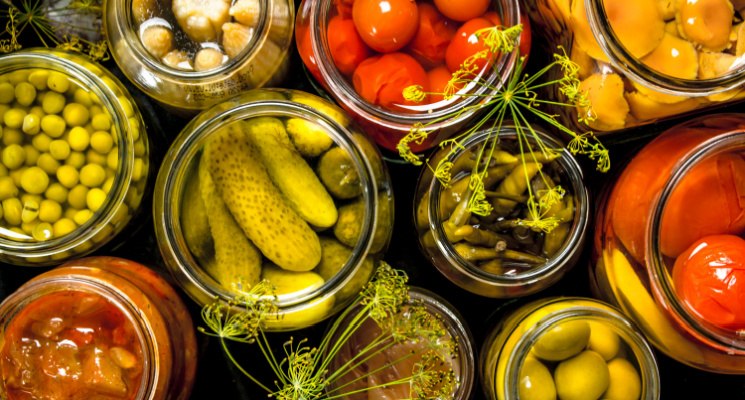
Foods that have been smoked or pickled are appealing because of their distinct flavors, but the preparation methods may pose health hazards. Smoking can produce nitrosamines, which are connected to an increased risk of cancer. Pickled foods frequently contain a high salt content, which is linked to stomach cancer. When consuming these delectable delicacies, moderation is essential.
People can take charge by making smoked or pickled dishes at home, where they can select premium ingredients and manage the preparation procedures. A balanced approach to health and well-being is further enhanced by balancing these pleasures with a diet high in fresh fruits and vegetables.
Risk Factors
- Smoking and pickling processes can lead to the formation of nitrosamines, associated with an increased risk of certain cancers.
- Pickled foods often have elevated salt levels, linked to stomach cancer.
Preventative Measures
- Consume smoked and pickled foods in moderation.
- Consider preparing smoked or pickled foods at home to control ingredients and processes.
- Include a variety of fresh fruits and vegetables in your diet to counteract the potential risks.
Can Certain Foods Reduce the Risk of Cancer?
Antioxidant-rich fruits and vegetables, such as broccoli, berries, and leafy greens, are well known for their ability to prevent cancer. Nuts, legumes, and whole grains offer vital minerals and fiber that support general health and may help reduce the risk. Omega-3 fatty acids, found in fatty fish like salmon, have anti-inflammatory properties that may lower the risk of cancer.
Furthermore, green tea’s polyphenol content has been linked to preventive effects against specific cancer types. A diet high in these nutrient-dense foods can provide you with the tools your body needs to support a lower risk of cancer and promote general health.
Important Considerations
Here are some of the things you can start doing right now:
- Schedule regular check-ups with health professionals, stay informed about cancer symptoms and risk factors, and follow recommended screening guidelines based on your age, gender, and family history. Consider genetic counseling if there is a family history of cancer.
- Perform self-exams for specific cancers, such as breast or skin exams, be attentive to any changes in your body, and seek medical advice promptly for any persistent symptoms.
- Adopt a healthy lifestyle with regular exercise, limited alcohol consumption, and no tobacco use. Protect your skin from the sun and participate in clinical trials for advanced detection methods.
Conclusion
Being mindful of your diet and adopting a balanced and informed approach to food choices can contribute to a healthier lifestyle. Incorporating a variety of fruits, vegetables, lean proteins, and whole grains provides essential vitamins and minerals that support your body’s functions.
For advice or personalized consultation, visit the ServiceMarket website or app, and book an appointment to get a doctor on call. That means, you will get a home visit by one of our DHA-accredited doctors. When you see them, they will check you over just like in a clinic. They can also give you any medicine you might need, write prescriptions, suggest more tests, and can also refer you to a specialized doctor if need be.



